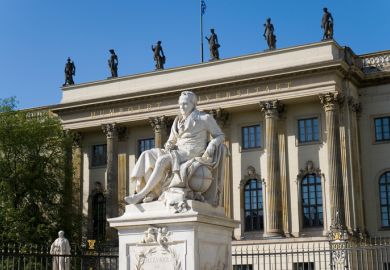We are currently in the midst of a transformation. Economic inequalities between many countries are falling. Growth is stagnating in rich nations while in many poorer countries incomes continue to rise. At the same time, inequalities within many countries are rising. We may be witnessing a metamorphic change in which overall inequalities remain stable, but soon the poorest will no longer live tens of thousands of kilometres away from the richest.
In rich countries, especially in the already most unequal of rich countries, the pressure is to increase the rewards to so-called highly skilled labour, including those who hold the most capital. Precariousness is rising and middle-income standards of living are falling. Those at the bottom in unequal affluent societies are seeing the safety nets beneath them evaporate.
François Bourguignon is former chief economist of the World Bank. Warnings that were being written just a dozen years ago by the most obscure analysts and anarchists on the fringe of academic writing and in the grey media are now routinely made in the mainstream. This book is written in calm prose, but its message is urgent: continue as we are and poverty will grow on our doorsteps. Many of us will be the new losers. As the author puts it: “the negative consequences of excessive inequality cannot be over-emphasized”.
Rising inequalities within countries is blamed on exogenous economic forces, including the expansion of international trade and technological progress. Bourguignon presents the economic policies and institutional reforms within any given country as having been of only secondary importance. The inequality between countries is shown to have steadily fallen from the 1990s onwards, while inequality within countries has risen relentlessly, with the internal division growing faster during 2008-10 than at any time earlier. More recent comparable data are not yet available for 92 per cent of the planet’s population.
We still have a long way to go before inequalities within countries dwarf those between them. The richest 600 million people on earth enjoy an average income of $25,000 (£17,000) a year, more than 90 times the purchasing power equivalent of the typical member of the poorest 600 million, who is (only just) surviving on $270 a year. Even in Brazil, one of the most unequal large countries in the world, that ratio is almost half as small, but it is still a staggering 50-fold difference.
Between the very richest 15 nations and the very poorest 15 the gap is growing; the increase in GDP between 1990 and 2008 of the very richest was 10 times greater than that enjoyed by the very poorest, as Bourguignon points out. These statistics ignore the income and wealth of the very richest 1 per cent, 0.1 per cent and 0.01 per cent of the population. For this last tiny fraction, even in relatively equitable France inequalities have “skyrocketed”, he observes, when the share taken by the best-off 3,000 families is compared with that of the poorest half of the population between 1998 and 2007. Within China, the Gini coefficient of wealth inequality rose by almost 10 percentage points between 1995 and 2002. As Coleridge’s Ancient Mariner might have put it today: money, money everywhere and not a cent to share.
The statistics are astounding. So much has become so much worse, so recently. All kinds of remedies are proposed and examined in this book. Many of these relate to improving educational opportunities for the poor through to the more effective taxation of the rich. It is lamented that UK politicians were unable to prevent their country’s already low top rate of income tax being reduced from 50 per cent to 45 per cent by George Osborne, the chancellor, in 2012. Bourguignon proposes income tax rates of 67.5 per cent for the best-off 1 per cent in the UK and US. These are described as both confiscatory and necessary – along with higher wealth taxes.
Who else is there left to now speak out? In the wake of presidents and popes, princes and prophets, former World Bank chief economists are joining the clamour. When the time comes there will be hardly anyone left to oppose what has to happen. Reductions in inequality and increases in taxation are almost always vehemently opposed and almost always accepted as sensible and reasonable within a few years of being adopted. But our collective memory is losing the struggle against forgetting. We forget when last we reduced inequalities worldwide. We forget the time before that, and the time before that…it has always been possible.
The Globalization of Inequality
By François Bourguignon
Princeton University Press, 224pp, £19.95
ISBN 9780691160528 and 9781400865659 (e-book)
Published 27 May 2015
Register to continue
Why register?
- Registration is free and only takes a moment
- Once registered, you can read 3 articles a month
- Sign up for our newsletter
Subscribe
Or subscribe for unlimited access to:
- Unlimited access to news, views, insights & reviews
- Digital editions
- Digital access to THE’s university and college rankings analysis
Already registered or a current subscriber?





